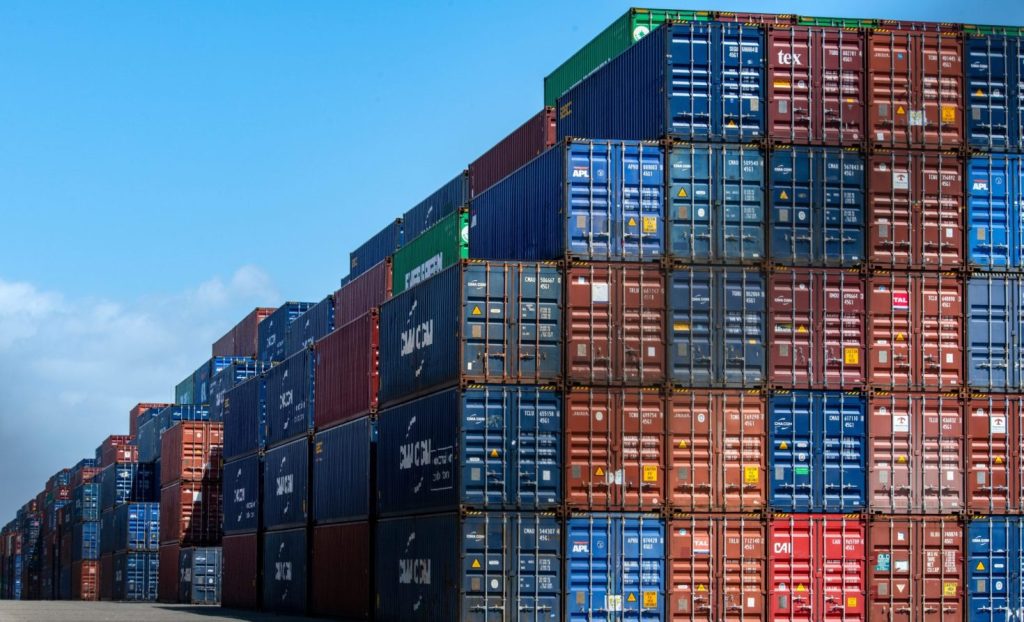3 ways tariffs will affect sustainable supply chains
Data collection, carbon disclosures and compliance requirements may shift. Read More

Key takeaways
- Supply chain shifts from tariffs could affect a company’s ability to collect data on the impact of value chains and shift carbon disclosure goal timeframes.
- Compliance on human-rights initiatives and ethical business practices could vary if supply chains move location.
- Companies committed to ESG performance likely will let political issues shake out before determining next steps.
The U.S. administration’s introduction (and delay) of sweeping tariffs already is showing signs of disrupting global trade. Of course, addressing the fundamental economic challenges the tariffs represent will be top of mind for all companies, but it’s important to note that the redrawn trade patterns and alliances will also likely change how companies approach their efforts to ensure supply chains meet their standards for environmental, social and governance-related performance.
In addition to the standard business imperatives of cost, quality and timeliness, most global corporations have already invested significant resources into mapping their value chains. Forward-looking companies have also engaged with suppliers on a wide range of issues including climate reporting and performance, human rights-related issues and ethical business practices.
But as customers and suppliers come to grips with a new economic landscape, it may require them to change suppliers to ensure they can remain economically competitive.
A supply chain reshuffle
According to our conversations with several global companies in the pharmaceuticals, software and manufacturing sectors, it’s still too early to predict the exact impacts of tariffs. However, all see the following three scenarios as possible, if not likely, if tariffs remain in place for any significant period.
- Supply chain shifts could affect data collection: Global corporations have invested substantially in building relationships with suppliers who share or at least agree to support efforts to obtain relevant data regarding the impacts of their value chains. The new economic calculus that the tariffs represent will almost certainly result in substantial portions of global supply chains being restructured and new relationships being put in place. This will affect mutual agreements on what information is provided by suppliers to customers – such as carbon metrics, health and safety information, human rights-related data and other sustainability measurements. Many of these ESG data collection processes will need to be rebuilt to some extent and may result in a disruption of data availability for some time.
- Changing carbon disclosures and goal timeframes: Various goal-setting regimes, including those administered by the Science Based Targets Initiative (SBTi), often have a requirement for companies to set goals related to the emissions that originate in their supply chain. To meet these goals, companies often will encourage their suppliers to set their own goals. However, if companies have to identify new suppliers to mitigate the impact of tariffs, most of these agreements will need to be renegotiated, putting those companies who have set such goals at risk of not being able to accomplish them in the time frame expected. This may result in reputational damage to those not able to meet their original commitments.
- Compliance unknowns for suppliers and manufacturers alike: The onshoring of supply chains in response to tariffs may result in easier compliance with various human rights and anti-corruption requirements. That’s because many companies have built sophisticated operations to protect working conditions and uphold ethical business practices. If supply chains are moved geographically closer — presumably to where the regulatory environment is similar to the purchaser — then there’s the chance we could see a net benefit from such tariffs. On the flip side, if a company requires certain raw materials that only originate from specific countries as an essential component to their manufacturing process, it’s also possible there could be a “race to the bottom” — where companies are tempted to source materials from anywhere, regardless of the supplier’s commitment to human rights and ethical business practices.
Doubling down on values
It’s clear we’re in a highly disruptive period for businesses, particularly for those committed to sustainable business practices. If you couple tariffs with an administration that’s clearly inclined to deregulate sustainability-relevant issues, then progress towards a more sustainable future may be more difficult for the next few years.
That’s why companies should prioritize their most important “non-negotiables” — be it human rights, basic carbon data and/or anti-corruption efforts — and stick to their values on these. Then let the political issues shake out before determining the next best steps.
Regardless, the business case for sustainable practices remains clear. Forward-looking companies that have already committed to visibility and traceability in their supply chain will be better positioned to navigate these disruptions and quickly adapt to the new global supply chain landscape.
[Connect with more than 3,500 professionals decarbonizing and future-proofing their organizations and supply chains through climate technologies at VERGE, Oct. 28-30, San Jose.]

Subscribe to Trellis Briefing
Featured Reports

The Premier Event for Sustainable Business Leaders
















